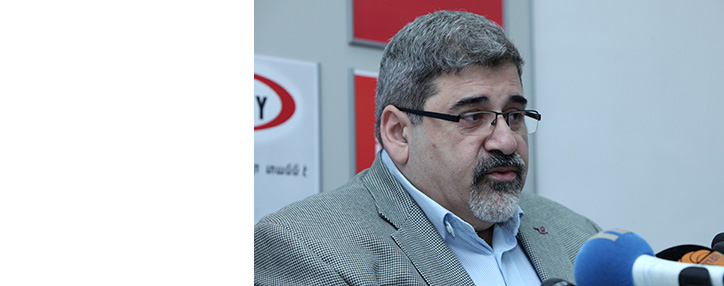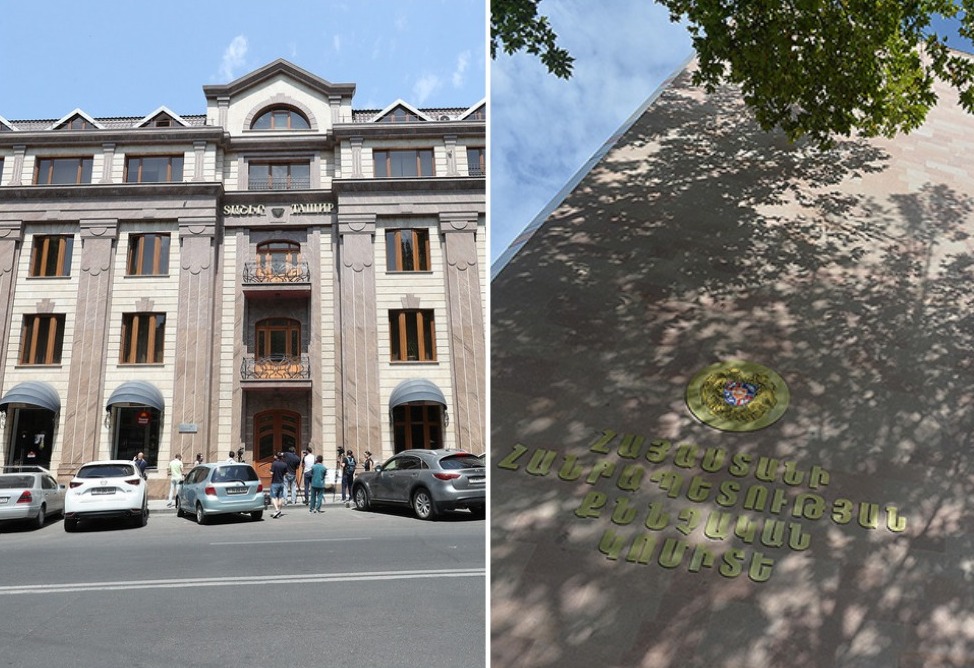A complex of political and legal steps is being developed to demand compensations for Armenian genocide in Ottoman Turkey
25.04.2017,
16:39
As part of the policy of demanding compensation for the Armenian Genocide in the Ottoman Empire, the Armenian side will develop a set of measures, Kiro Manoyan, a senior member of the Armenian Revolutionary Federation (ARF) said today to journalists.

YEREVAN, April 25. /ARKA/. As part of the policy of demanding compensation for the Armenian Genocide in the Ottoman Empire, the Armenian side will develop a set of measures, Kiro Manoyan, a senior member of the Armenian Revolutionary Federation (ARF) said today to journalists.
He said the Pan-Armenian Declaration adopted on the occasion of the 100th anniversary of the Armenian Genocide in 2015, calls for a transition from a recognition policy to a compensation policy. In his words, this is a national position, and certain steps are already being taken in this direction.
According to him, compensation does not mean exclusively legal or judicial claims, since the international law does not provide for relevant full-fledged opportunities.
"At the moment, a whole complex of both political and legal steps is being developed, which will be implemented both at the state level and by public and church organizations," Manoyan said. He stressed that various opportunities are being explored that will allow to form a complex of productive steps.
Armenians all over the world, marked on April 24, the 102nd anniversary of the Armenian Genocide in the Ottoman Empire.
The Armenian genocide was recognized by tens of countries. The first was Uruguay that did so in 1965. Other nations are Russia, France, Italy, Germany, Holland, Belgium, Poland, Lithuania, Slovakia, Sweden, Switzerland, Greece, Cyprus, Lebanon, Canada, Venezuela, Argentina, 45 U.S. states.
It was recognized also by the Vatican, the European Parliament, the World Council of Churches and other international organizations. --0-----
He said the Pan-Armenian Declaration adopted on the occasion of the 100th anniversary of the Armenian Genocide in 2015, calls for a transition from a recognition policy to a compensation policy. In his words, this is a national position, and certain steps are already being taken in this direction.
According to him, compensation does not mean exclusively legal or judicial claims, since the international law does not provide for relevant full-fledged opportunities.
"At the moment, a whole complex of both political and legal steps is being developed, which will be implemented both at the state level and by public and church organizations," Manoyan said. He stressed that various opportunities are being explored that will allow to form a complex of productive steps.
Armenians all over the world, marked on April 24, the 102nd anniversary of the Armenian Genocide in the Ottoman Empire.
The Armenian genocide was recognized by tens of countries. The first was Uruguay that did so in 1965. Other nations are Russia, France, Italy, Germany, Holland, Belgium, Poland, Lithuania, Slovakia, Sweden, Switzerland, Greece, Cyprus, Lebanon, Canada, Venezuela, Argentina, 45 U.S. states.
It was recognized also by the Vatican, the European Parliament, the World Council of Churches and other international organizations. --0-----



